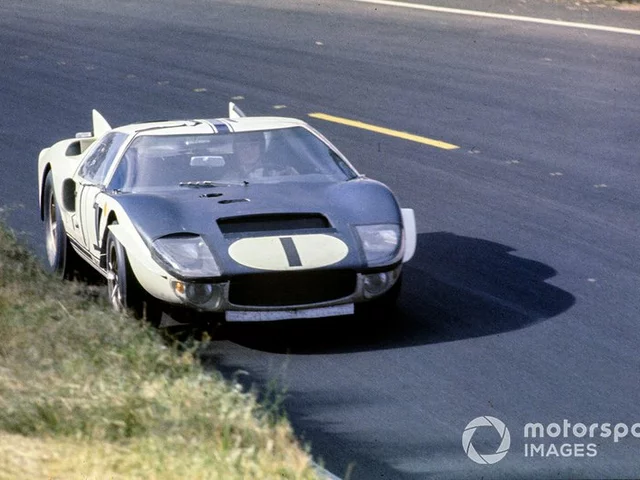
The Origin Story of IndyCar and Formula 1
IndyCar and Formula 1 have unique histories that have largely shaped their trajectories. IndyCar was born out of American open-wheel racing, with its roots firmly planted in the iconic Indianapolis 500. Formula 1, on the other hand, was conceived in Europe with a vision of a global racing series. The geographical locations of their birthplaces have played a significant role in why these two series have evolved differently.
IndyCar’s Domestic Focus
IndyCar has always been heavily focused on the American market. The series’ most prestigious event, the Indianapolis 500, is widely considered one of the greatest spectacles in American sports. Most of the tracks IndyCar competes on are located within the United States. The series' fanbase is also largely domestic, with a heavy concentration in the Midwest. This domestic focus has often made it challenging for IndyCar to penetrate global markets.
Formula 1’s Global Vision
From its inception, Formula 1 was designed with a global vision. The series sought out to attract the best drivers and teams from around the world, and it has been successful in this respect. Formula 1 races take place on every continent, drawing in massive global audiences. The series has also been effective in marketing itself globally, which has helped it become one of the most popular sports worldwide.
Financial Considerations
Finances play a significant role in why IndyCar has not gone global like Formula 1. The cost of running a global racing series is astronomical. Formula 1 is able to support this through massive global sponsorship deals and significant financial backing from its team owners. IndyCar, on the other hand, operates on a much smaller budget and does not have the same level of financial resources to support a global series.
Technical Differences
There are also technical differences between IndyCar and Formula 1 that have contributed to their differing global reach. Formula 1 cars are technological marvels that attract global attention. IndyCar vehicles, while impressive, do not feature the same level of advanced technology. This has made Formula 1 more attractive to global audiences who appreciate the cutting-edge technology of the sport.
Marketing and Branding
Marketing and branding have also played a significant role in these series' differing global reach. Formula 1 has been very successful in establishing a powerful global brand. IndyCar, on the other hand, has struggled to establish a strong brand outside of the United States. This has limited the series' ability to attract international audiences and sponsors.
Cultural Differences
There are also cultural differences between the United States and the rest of the world that have impacted the global reach of IndyCar. American sports tend to be more domestically focused, and this is reflected in IndyCar. Formula 1, however, was born out of a European culture that is more open to global influences, which has helped it become a truly international sport.
The Role of Media
Media plays a significant role in shaping the global reach of a sport. Formula 1 has been successful in securing lucrative global broadcasting deals, which have helped it reach a massive global audience. IndyCar, however, has struggled to secure similar deals outside of the United States, limiting its global exposure.
Future Prospects for IndyCar
Despite these challenges, there are signs that IndyCar may be starting to expand its global reach. The series has begun attracting more international drivers and teams, and there is increasing interest from international broadcasters. While it is unlikely that IndyCar will ever achieve the same level of global popularity as Formula 1, it is certainly possible that it could increase its international presence in the future.
Conclusion: A Tale of Two Series
In conclusion, there are numerous reasons why IndyCar has not gone global like Formula 1. These include historical, financial, technical, marketing, cultural, and media factors. While IndyCar may never achieve the same level of global reach as Formula 1, it remains a thrilling and uniquely American racing series that has a dedicated fanbase. As the series continues to evolve and adapt, it will be interesting to see how its global presence changes in the future.
More Articles

Did Ken Miles lose Le Mans?
In the controversial 1966 Le Mans race, Ken Miles did technically lose, but not because of his performance. Despite crossing the finish line first, he was declared second due to a rule that counted the total distance covered. Ford, in a bid to achieve a photo finish with their three cars, inadvertently cost Miles the win. It's a topic of heated debate even today in racing circles. Essentially, Miles was the fastest, but due to a technicality, he didn't take home the trophy.

Did Ken Miles lose Le Mans?
Ken Miles was a race car driver who tragically died in 1966 while testing a Ford J Car at the Riverside International Raceway. In the 2019 film Ford v Ferrari, his story was told and his attempt to win the 24 Hours of Le Mans race in 1966 was featured. In the film, it appears that he was denied victory due to a technicality and his dream of winning was not realised. However, the true story is slightly different and while Miles was not officially declared the winner, he and his co-driver Denny Hulme did receive the checkered flag first. Unfortunately, due to a misunderstanding, the race was declared a tie and neither driver was awarded the victory. Thus, Ken Miles lost the race, but not due to any fault of his own.

